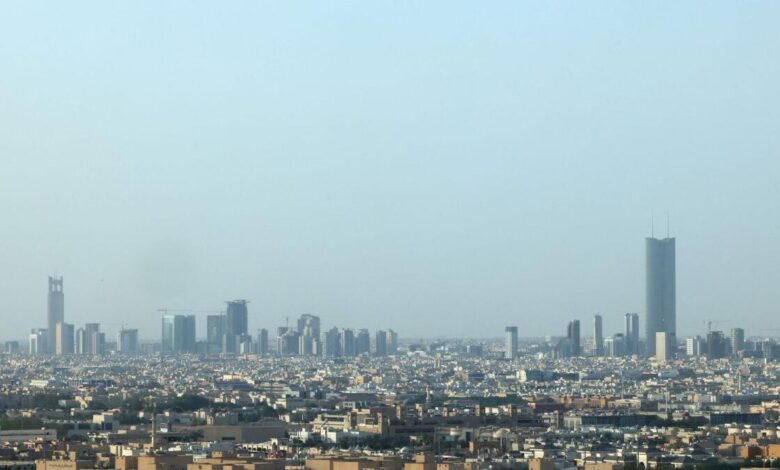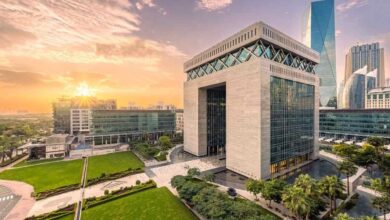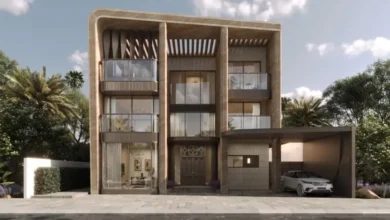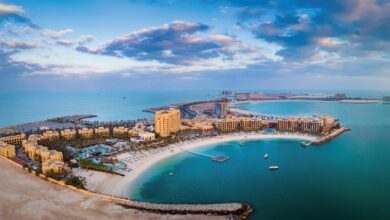
The real estate sector across the GCC region is expected to maintain its upward momentum, reinforced by strong macroeconomic fundamentals, supportive government policies, and increasing investor interest, according to property market analysts at Kuwait Financial Centre, or Markaz.
The positive projections by Markaz Mena Real Estate team and Marmore Mena Intelligence are based on a thorough evaluation of critical macroeconomic indicators such as GDP growth rates, fiscal policies, and the oil market dynamics.
The Markaz Real Estate Macro Index Scores for the UAE, Kuwait, and Saudi Arabia for the second half of 2024 are projected at 3.7, 3.5, and 3.6, respectively. The UAE maintains a stable score of 3.7, Kuwait and Saudi Arabia show increases from H1 2024 scores of 2.9 and 3.55, reflecting continued robustness and potential for sustained growth within these key GCC real estate markets.
The UAE real estate sector is poised for continued growth through 2024, driven by solid demand across residential, office, and hospitality segments, as detailed in the latest UAE Real Estate Report.
The non-oil economy, including significant contributions from the real estate sector, is expected to sustain strong growth, buoyed by government support and favorable policies such as the revised Golden Visa requirements, which now enhance investor eligibility, the report said.
Despite geopolitical uncertainties mildly clouding economic prospects, the real estate market remains vibrant, with record-breaking transactions and price increases. In the first quarter of 2024 alone, residential property prices in Dubai and Abu Dhabi showed impressive annual gains of 18.3 per cent and 8.6 per cent, respectively, strengthening the UAE’s position as a competitive luxury housing market globally, it said.
“Moreover, easing the Dh1 million minimum down payments for golden visas is anticipated to further stimulate the real estate market by attracting more international investors. Office spaces in Dubai and Abu Dhabi have also seen rent increases due to high demand, particularly in higher-grade properties, reflecting a market trend towards quality,” analysts wrote.
The UAE’s hospitality sector continues to thrive, supported by a surge in tourism and business travel, contributing to a robust performance in hotel average daily rates across major cities. Based on a comprehensive analysis of various macroeconomic factors, the UAE real estate sector is expected to maintain its growth trajectory in the latter half of 2024, albeit with a slight moderation in certain segments and areas like Abu Dhabi, Markaz analysts noted.
“The market’s resilience indicates a well-supported economic environment and proactive policy measures ensuring sustained growth and investment appeal.”
Kuwait’s real estate sector is indicating resilience and potential for growth amidst challenging economic conditions, with a projected GDP contraction of 1.4 per cent for 2024 following a 2.2 per cent decrease in 2023. Despite these broader economic challenges, the non-oil sectors, especially real estate, are experiencing growth supported by an expected 2.0 per cent increase in non-oil GDP. Enhanced project activities and anticipated business reforms drive this growth.
The Saudi Arabian real estate market is set to experience a significant upturn in 2024 following a sluggish period last year, buoyed by burgeoning activities in both the oil and non-oil sectors. According to the International Monetary Fund, Saudi’s real GDP is anticipated to climb to 2.6 per cent in 2024 from a previous contraction, with an optimistic projection of 8.1 per cent growth in 2025.





